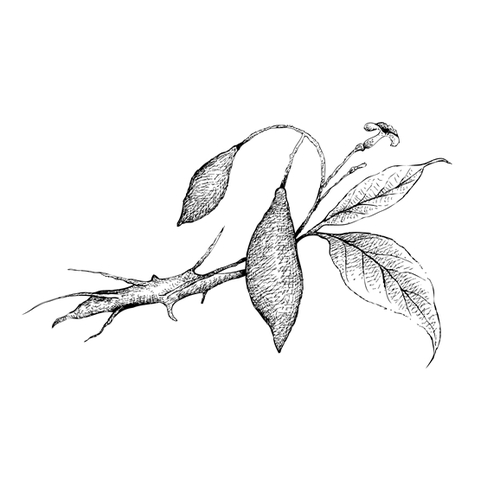
Background
Iboga contains chemicals that can cause brain stimulation. The root bark of the plant contains a chemical called ibogaine. Ibogaine is illegal in the US due to its high potential for abuse.
People use iboga for withdrawal from heroin, morphine, and other opioids, as well as for fever, addictions, and many other conditions, but there is no good scientific evidence to support any use. Using iboga can also be unsafe.
Safety Safety definitions
There isn't enough reliable information to know if the iboga shrub is safe or what the side effects might be.
Special Precautions & Warnings:
Pregnancy and breast-feeding: There isn't enough reliable information to know if iboga is safe to use when pregnant or breast-feeding. Stay on the safe side and avoid use.Effectiveness
Dosing & administration
Interactions with pharmaceuticals
Drying medications (Anticholinergic drugs)
Interaction Rating=Moderate Be cautious with this combination.
Iboga can increase a chemical in the body called acetylcholine. Acetylcholine plays a big part in many important body functions. Some medications, called anticholinergic drugs, block the effects of acetylcholine in the body. Taking iboga might decrease the effects of anticholinergic drugs.
Medications that can cause an irregular heartbeat (QT interval-prolonging drugs)
Interaction Rating=Moderate Be cautious with this combination.
Iboga might affect electrical currents in the heart. This can increase the risk of having an irregular heartbeat. Some medications can have this same effect. Taking iboga with these medications might increase the risk for a serious heart issue.
Medications that decrease break down of other medications by the liver (Cytochrome P450 2D6 (CYP2D6) inhibitors)
Interaction Rating=Moderate Be cautious with this combination.
Iboga is changed and broken down by the liver. Some drugs decrease how quickly the liver changes and breaks down iboga. This could change the effects and side effects of iboga.
Paroxetine (Paxil)
Interaction Rating=Major Do not take this combination.
Iboga contains ibogaine. Paroxetine can slow the liver from breaking down ibogaine. This might increase the chance of side effects caused by ibogaine.
Serotonergic drugs
Interaction Rating=Moderate Be cautious with this combination.
Ibogaine, a chemical in iboga, might increase a brain chemical called serotonin. Some medications also have this effect. Taking iboga along with these medications might increase serotonin too much. This might cause serious side effects including heart problems, seizures, and vomiting.
Various medications used for glaucoma, Alzheimer's disease, and other conditions (Cholinergic drugs)
Interaction Rating=Moderate Be cautious with this combination.
Iboga can increase a chemical in the body called acetylcholine. Some medications that are used for glaucoma, Alzheimer disease, and other conditions, also increase acetylcholine levels. Taking iboga with these medications might increase the chance of side effects.
Interactions with herbs & supplements
Herbs and supplements with serotonergic properties: Ibogaine, a chemical in iboga, increases a brain chemical called serotonin. Taking it along with other supplements that have this effect might cause serious side effects, including heart problems, seizures, and vomiting. Examples of supplements with this effect include 5-HTP, black seed, L-tryptophan, SAMe, and St. John's wort.


